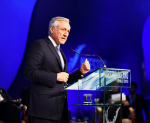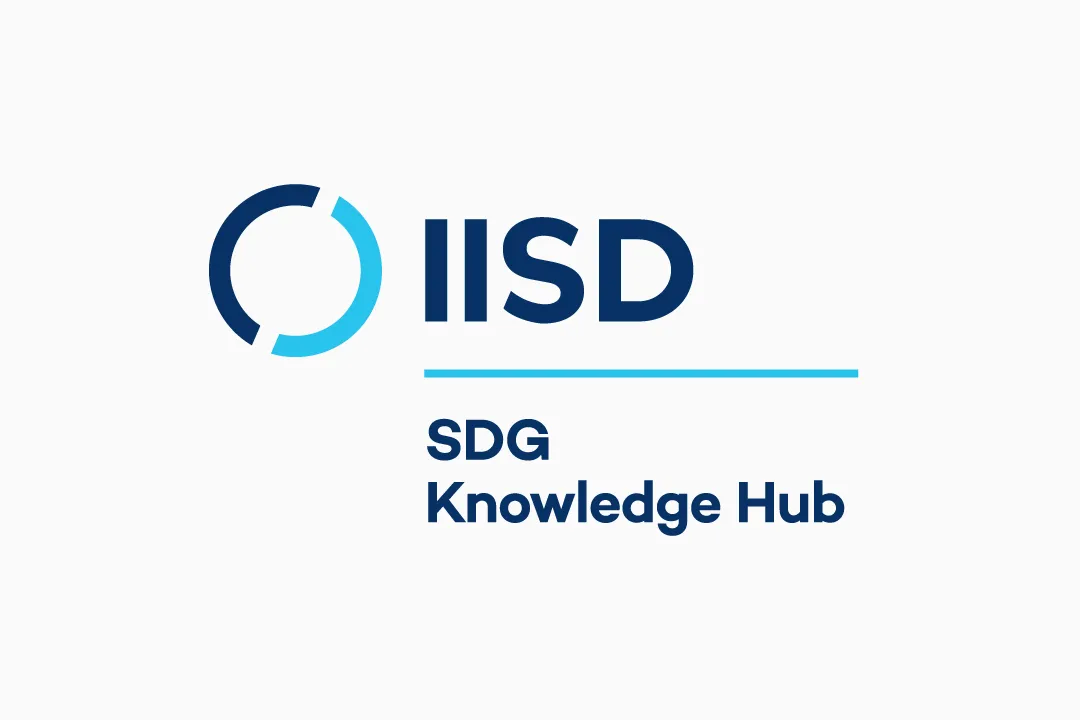 6 October 2015: The Second Our Ocean Conference generated US$2.1 billion in commitments on oceans, including announcements of more than 80 initiatives on marine conservation and protection and the protection of over 1.9 million square kilometers of ocean. The Conference aimed to promote voluntary governmental and institutional commitments to care for the world’s oceans.
6 October 2015: The Second Our Ocean Conference generated US$2.1 billion in commitments on oceans, including announcements of more than 80 initiatives on marine conservation and protection and the protection of over 1.9 million square kilometers of ocean. The Conference aimed to promote voluntary governmental and institutional commitments to care for the world’s oceans.
The Conference convened from 5-6 October 2015, in Valparaíso, Chile. The Government of Chile organized the meeting in close cooperation with the US Department of State and other partners. Over 500 participants attended the meeting from 56 countries, representing governments, intergovernmental organizations, non-governmental organizations, academia and the private sector. An additional 900 participants joined two parallel events at the National Congress and Federico Santa María Technical University. During the conference, participants convened in high-level segments and six panels on: marine protected areas (MPAs); ocean acidification; marine pollution; ocean champions; sustainable fisheries; local communities; and law of the sea governance.
Michelle Bachelet, President, Chile, announced Chile’s commitment to create two new marine parks, totaling more than 1 million square kilometers, including the Nazca-Desventuradas Marine Park and an MPA around the exclusive economic zone (EEZ) in the area around Rapa Nui, known around the world as Easter Island. Chile committed to work with the Rapa Nui community and take into consideration their ancestral fishing in the development of the MPA. The US announced the creation of protected areas in Maryland and in the Great Lakes in Michigan. Other announcements on MPAs and marine reserves included two MPAs in Panama and a reaffirmation by New Zealand on the creation of the Kermadec Ocean Sanctuary.
To address illegal, unreported and unregulated (IUU) fishing, the US launched Sea Scout, which aims to enhance coordination, information sharing and capacity building around the world on IUU fishing, with an initial focus on regional hotspots, such as the Gulf of Guinea. Chile, New Zealand, Norway, Palau, the Food and Agriculture Organization of the UN (FAO), the World Wildlife Fund, the Pew Charitable Trusts, Oceana, the International Seafood Sustainability Foundation and the International Monitoring, Control and Surveillance (MCS) Network announced their support for Sea Scout. Also on monitoring, the Marisla Foundation announced US$1.5 million towards Global Fishing Watch, a program developed by Google, Skytruth and Oceana, which uses satellite data to monitor fishing vessels and track fishing activity.
On marine pollution commitments, the US Environmental Protection Agency (EPA) announced the Trash Free Initiative, through which Peace Corps volunteers will work with communities to reduce marine litter in the Caribbean Sea, with initial pilot projects in Jamaica and Panama. The US National Oceanic and Atmospheric Administration (NOAA) committed US$1.5 million in 2016 to remove accumulated marine debris from sensitive ecosystems in the US and to support local projects that change behavior to reduce the amounts and impacts of marine debris. The Ocean Conservancy, with the Trash for Sea Alliance, committed to raise up to US$2.5 million for an initiative to coordinate efforts in Asia-Pacific to develop integrated waste management plans. The Association of Plastic Industries in Chile committed to continue collecting marine litter on Rapa Nui, which is brought to Chile’s mainland for recycling.
On legislation, Chile fulfilled its commitment from the 2014 Our Ocean Conference to join the UN Fish Stocks Agreement by signing its instrument of ratification. Several other countries and organizations urged countries to ratify the agreement. Recalling that Canada, Denmark, Norway, the Russian Federation and the US signed a declaration aimed at preventing IUU fishing in the high seas of the Central Arctic Ocean, the US announced that it will convene a broader set of nations with the goal of transforming this declaration into a binding agreement.
Other commitments addressed promoting sustainable fisheries through certification, including commitments by the European Union (EU) and Norway; building capacity; and preventing and monitoring ocean acidification.
The US will host the 2016 Our Ocean Conference, while the EU offered to host the 2017 Conference in Europe. [Our Ocean Conference Website] [IISD RS Coverage of Second Our Oceans Conference] [WWF Press Release on Sea Scout]

